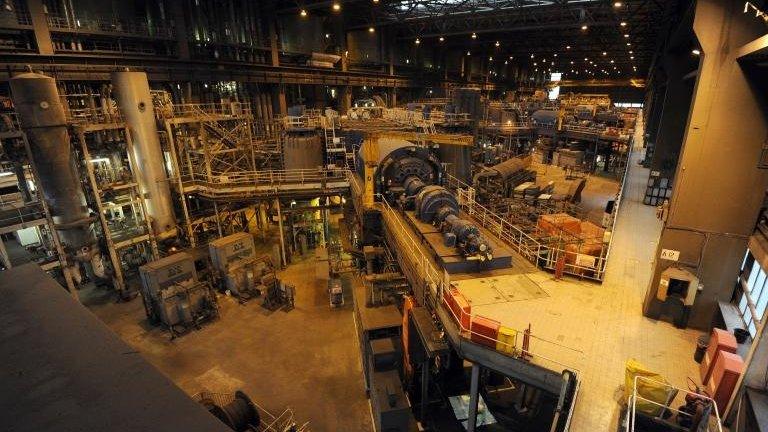EU green light for UK carbon capture and storage project
- Published
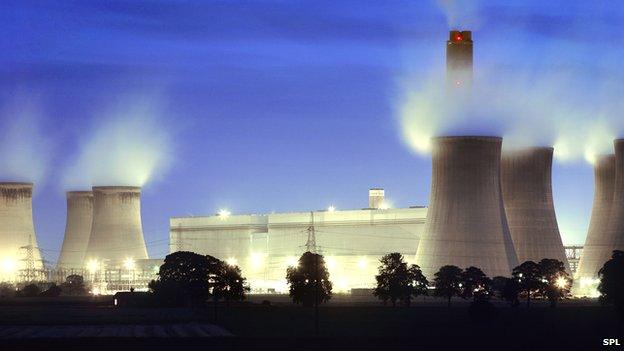
The new White Rose carbon capture plant will be built close to the existing Drax facility
A UK project to capture CO2 and bury it under the North Sea looks set to receive a 300m-euro boost from the EU.
The European Commission has confirmed that the White Rose carbon capture and storage, external (CCS) project is in line to win the cash (equivalent to about £250m).
The gas will be siphoned off from a new coal-fired power station and stored in undersea rock formations.
Climate scientists believe CCS has a key role to play in reducing future CO2 emissions.
Building large-scale demonstration plants that capture carbon from coal or gas and secure it in permanent storage sites has not been easy.
In 2012, the European Union was unable to find a single project to fund, external when it attempted to spur the development of the technology.
Undeterred, the EU Commission again asked governments to submit written proposals on CCS and, according to officials, the UK has nominated the White Rose project.
As it is the only eligible plan to have been put forward, it is expected that a grant of 300m euros will now be forthcoming in June.
"The UK has confirmed the White Rose CCS project," said an EU spokesman.
"The project will hence be considered for an award expected by mid-2014. If awarded, this project could boost the local economy and create jobs when they are most needed."
Beneath the waves
The White Rose CCS project will involve the construction of a new, coal-powered plant next to the existing Drax facility near Selby, in Yorkshire.
Drax is in the process of converting from coal to biomass, and by 2016 is expecting to generate half its power from wood pellets.
White Rose will provide electricity to over 630,000 homes but 90% of the CO2 emissions from the plant will be captured, amounting to two million tonnes per year.
The gas will then be transported through National Grid's proposed pipeline to be permanently stored under the North Sea.
Last year, the UK government selected White Rose and another facility at Peterhead in Scotland as the preferred options to receive development funding of £100m.
The EU decision has been welcomed by Liberal Democrat MEP and environment spokesman, Chris Davies.
"This is a huge win for Britain that could secure millions of pounds of EU funding to support the country's first carbon capture power station, and perhaps the first in Europe," he said.
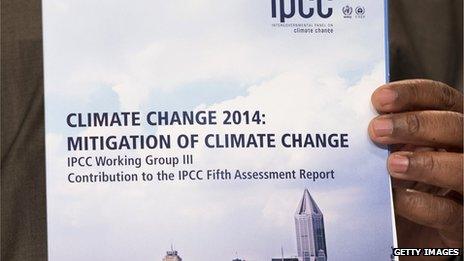
The latest report from the IPCC gives a guarded welcome to CCS technology
"It marks a major political commitment by the government to ensure that we can keep using fossil fuels but without contributing to the problem of global warming."
The imminent EU backing for the White Rose project was also welcomed by researchers in the field who said that it would be critical in getting the plant up and running.
"It's very good news for the UK and EU," said Dr Vivian Scott, from the University of Edinburgh.
"The money is conditional on the project being delivered; you have to deliver a project that injects the relevant quantity of CO2."
Climate scientists meeting in Berlin earlier this week endorsed the technology as an important element of containing emissions of carbon over the next 100 years.
The IPCC says that if the world wants to limit temperatures rises and continue using coal and oil, then the CO2 has to be stripped out and buried.
"CCS technologies could reduce the lifecycle of greenhouse gas emissions of fossil fuel power plants," says the report, which also stresses many of the downsides of the technology, including worries about the long-term integrity and safety of CO2 storage.
Europe was once seen as a leader in developing the CCS technology but the costs have proved challenging. It is estimated that adding CCS to a power plant could increase the cost of electricity by between 50-100%.
The EU had hoped that the development of an emissions trading scheme across the Union would have provided the incentive to develop CCS.
In theory, installations could sell credits for the carbon that they sequestered in the emissions market. However, the collapse in the price of carbon has meant that progress with CCS has been very slow.
The technology is being developed a bit more smoothly in the US and Canada where the boom in unconventional oil means there is a big market for CO2, which can be used in extraction techniques that recover hard-to-reach deposits.
The Boundary Dam project in Saskatchewan is due to open this year. Another major plant, the Texas Clean Energy Project, external, is being held up by a lack of skilled construction workers in the region according to backers.
Follow Matt on Twitter @mattmcgrathbbc, external.
- Published12 April 2014
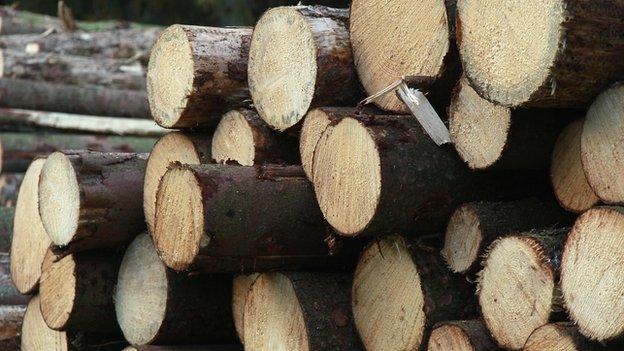
- Published14 April 2014
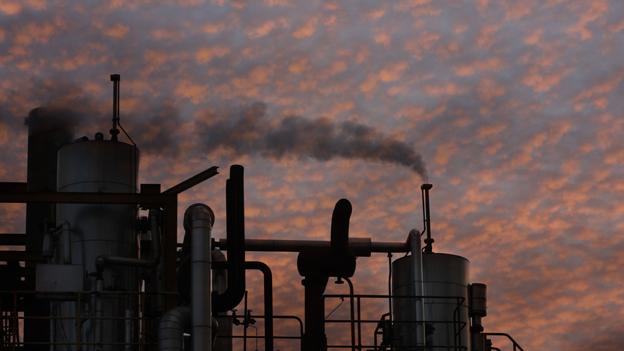
- Published9 December 2013
